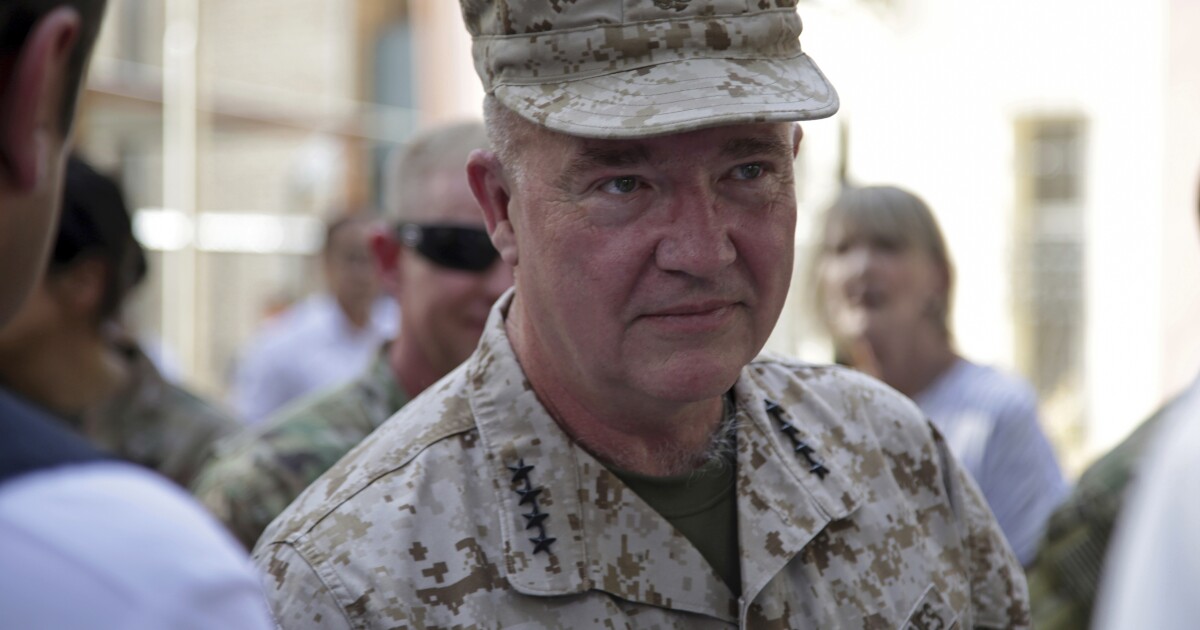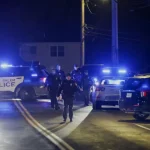

Retired Gen. Frank McKenzie said he believes the delay in withdrawing troops from Afghanistan can be attributed to “American arrogance.” He spoke to his many regrets about the withdrawal that led to the deaths of 13 U.S. service members in August 2021.
McKenzie, the head of United States Central Command at the time of the withdrawal, said in an interview with Fox News‘s Jennifer Griffin that he regretted the U.S.’s decision to “stay on until the very end,” saying that often pushing that choice could land, and did land, the country in an “extremist situation.”
BIDEN FCC NOMINEE ON TRACK FOR CONFIRMATION, OPENING PATH TO NET NEUTRALITY DEBATE
“I think it’s a case of American exceptionalism or American arrogance, depending on your perspective, to believe that you can actually withdraw, beaten from the field of battle, and still maintain a large political platform in the country you’re actually retreating from,” McKenzie said in the interview, which aired Thursday.
“I go back to the basic decision to wait so very late to begin to bring people out — after we had already given away Bagram Airfield, after we had already drawn down to a very low footprint in the country,” he continued. “I think those were the decisions that led to the scenes at the airport in Kabul.”
The 13 service members and at least 170 Afghan citizens died after Abdul Rahman al Logari detonated a suicide vest in a terrorist attack at the Kabul airport during the evacuation. It was the third deadliest incident in the U.S.’s two decades in Afghanistan.
When asked if there was anything that he could have done differently, McKenzie said, “You will always look back any time you lose people.”
“You wonder if you could have done things differently. And I am haunted by that. I think about it quite a bit. It’s one of the many regrets that I have,” McKenzie said. “I examine everything we did. I think about it, particularly in the month of August of every year for the rest of my life, I’m gonna think about this very hard.”
He dismissed claims that the U.S. had intelligence related to a suicide bomber staying at a hotel and that the Taliban, whom the U.S. partnered with to help maintain security, did not follow through on the request to conduct an assault on the hotel.
The details were revealed in a new book, Kabul: The Untold Story of Biden’s Fiasco and the American Warriors Who Fought to the End.
The book says that “there was also a request for a drone strike to be carried out” at the hotel where the bomber was believed to be.
“The request was allegedly turned down — is that true?” Griffin asked, to which McKenzie replied, “That is not true.”
“There were a variety of targets that we passed to the Taliban to take a look at, more than 10. Some they did, some they didn’t action. We had nothing specific about a hotel that we asked them to take a look at,” McKenzie said when asked if the U.S. had intelligence about ISIS-K members gathering at the hotel near the airport.
CLICK HERE TO READ MORE FROM THE WASHINGTON EXAMINER
However, McKenzie said he does not think the Taliban let Logari through intentionally and that he does not regret striking a deal with the group.
“And I feel had we not done so, our casualties would have been significantly higher,” the retired general added.





